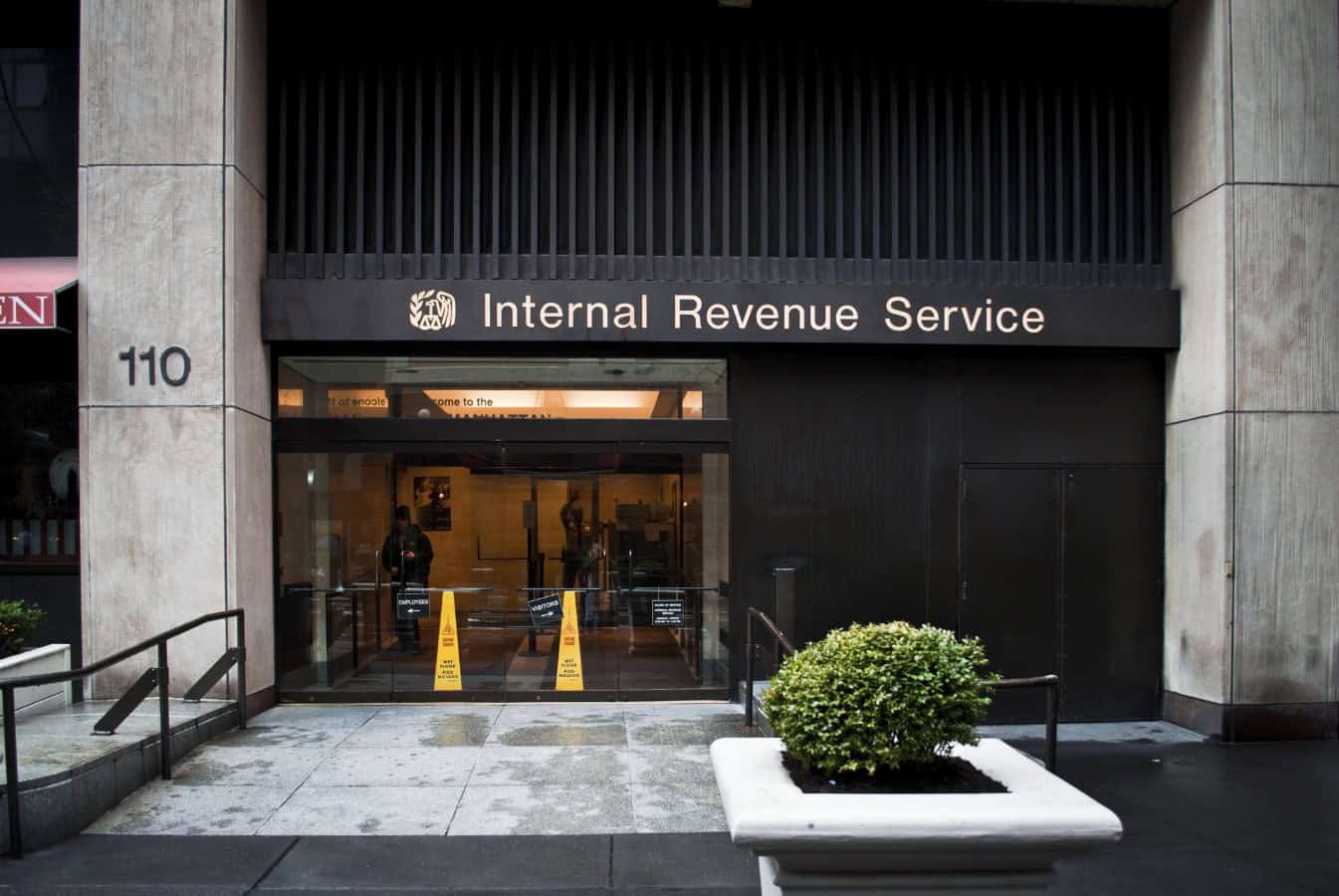CBO Plan Would Strip Tax Credits From Anyone Without A Valid Work SSN; $28 Billion Savings – Financial Freedom Countdown
As America faces one of its worst fiscal outlooks in history, the Congressional Budget Office (CBO) has proposed a commonsense solution: tightening eligibility for federal tax credits to ensure they only benefit legal workers.
One key option would block access to the Earned Income Tax Credit (EITC) and Child Tax Credit (CTC) for anyone without a Social Security number valid for U.S. employment; a change that could save taxpayers nearly $28 billion over the next decade.
America’s Deficit Problem Is Getting Worse

The U.S. is on track to rack up $1.36 trillion more in spending than it takes in for fiscal year 2025, making it the second-largest six-month deficit in history, according to Treasury data.
Washington hasn’t run a surplus since 2001, and since 2016, mandatory spending on programs like Social Security, Medicare, and interest payments on the debt have ballooned far beyond federal revenues.
The math is simple: America is living beyond its means.
Why Taxpayer Dollars Must Be Better Protected

Lawmakers and budget hawks have long argued that federal tax credits should be off-limits to those who are not legally working in the U.S.
The CBO’s proposal echoes that sentiment by calling for a work-authorized Social Security number for everyone claiming the EITC or CTC, including spouses and children listed on the tax return.
Current Law Leaves the Door Wide Open

Today, the Child Tax Credit can be claimed by people who do not have work-authorized Social Security numbers, as long as the child has one.
Meanwhile, individuals without valid SSNs can file taxes using Individual Taxpayer Identification Numbers (ITINs); a workaround critics say creates a massive loophole allowing billions in credits to be claimed by those not authorized to work in the country.
ITINs are issued by the Internal Revenue Service (IRS) to anyone who is required to file a tax return but cannot obtain a Social Security number.
What the CBO’s Proposal Would Do

Under the proposed reform, the IRS would be empowered to automatically reject tax credit claims from anyone not providing a valid work SSN.
These denials would be processed through the agency’s “math error” procedures, meaning the government could block improper payments instantly without time-consuming audits or court cases.
Taxpayers would still have a right to dispute the decision, but the burden of proof would lie with them.
Estimated Savings of $27.8 Billion Over 10 Years

If adopted, the measure would slash the federal deficit by nearly $28 billion by 2034, with $13.5 billion saved in just the first five years.
While not a silver bullet, this would represent a meaningful step toward restoring fiscal discipline; especially when paired with broader entitlement and spending reforms.
Who Loses Under the Proposal

If enacted, this policy would exclude noncitizens without work authorization, even if they pay taxes using Individual Taxpayer Identification Numbers (ITINs).
This means that many mixed-status households; where children are U.S. citizens but parents are not work-authorized could lose access to critical tax relief.

The CBO estimates the policy would reduce the federal deficit primarily by cutting off access to credits ineligible taxpayers might otherwise receive.
However, advocates argue the change could increase child poverty and financial strain on low-income households, particularly those with complicated immigration statuses.
Federal Spending Is Fueling the Debt Spiral

According to the Treasury Department, increased spending on Social Security COLAs, Medicare, Medicaid, FEMA, and the Department of Defense has played a key role in driving the 2025 deficit.
Unless Washington makes hard choices now, debt payments alone could eventually crowd out spending on core programs; or force painful tax hikes down the road.
Why the Proposal Is Gaining Momentum

With Social Security and Medicare costs rising and the national debt projected to hit $40 trillion within the next few years, momentum is building in Congress to rein in loophole-driven spending.
Many lawmakers argue that U.S. tax benefits should go to U.S. citizens and legal workers; not to people gaming the system.
Voters Support the Policy

The Center for Excellence in Polling recently surveyed likely voters in a nationwide poll on several issues facing the federal government currently.
Results indicate that 72% of likely voters support measures that protect taxpayer resources for receiving the Child Tax Credit (CTC) payment.
Bills in Congress to Fix the Loophole

Sen. Cindy Hyde-Smith (R-Mississippi) introduced the Safeguarding American Workers’ Benefits Act and the companion bill in the House was introduced by U.S. Rep. Clay Higgins (R-LA).
She said, “This legislation is not about denying assistance to those in need, but rather ensuring that taxpayer-funded benefits are reserved for American citizens who contribute to our society. With implementation of the Safeguarding American Workers’ Benefits Act, we can restore accountability and ensure that this taxpayer-funded benefit serves its intended purpose: assisting American families in raising our next generation.”
H.R.7991 – Safeguarding American Workers’ Benefits Act was introduced in the 118th Congress (2023-2024) but did not progress to the floor for a vote.
H.R.778 has been reintroduced in the 119th Congress (2025-2026) on 02/12/2024 by Rep. Clay Higgins (R-LA) and is currently referred to the House Committee on Ways and Means.
Reforming Tax Credits is a Step Toward Real Accountability

This CBO proposal is one of many options floated in its “Options for Reducing the Deficit: 2025 to 2034” report.
While critics will undoubtedly push back on enforcing stricter eligibility rules, supporters see it as a clear, enforceable, and politically achievable way to reduce abuse and restore trust in government spending.
Like Financial Freedom Countdown content? Be sure to follow us!
House Passes Trump’s Education Overhaul Forcing Colleges to Pay for Student Loan Defaults

A sweeping Republican-backed education and tax bill, endorsed by President Trump, now forces colleges to share responsibility when their graduates default on student loans. This “skin‑in‑the‑game” provision penalizes institutions whose students fail to earn enough from their degrees to repay loans; marking a dramatic change in how higher education is funded and scrutinized. Branded by some conservatives as a long-overdue reform, critics warn the plan could upend college affordability for millions; especially low-income families, graduate students, and current borrowers. We break down what the bill includes; and what it could mean for students, parents, and universities.
House Passes Trump’s Education Overhaul Forcing Colleges to Pay for Student Loan Defaults

Seniors counting on full Social Security benefits just got troubling news. The program’s trust funds are now projected to run dry by 2034; one year earlier than previously forecast. According to a new government report, the accelerated timeline is partly due to the added cost of the Social Security Fairness Act, which boosted payouts for millions of retired public workers. If no action is taken, monthly benefits could be slashed by around 20%.
New Law Helped Government Workers But Speeds Up Social Security Cuts for Everyone Else
Warren Blames Trump for “Financial Scarlet Letter” as Student Loan Collections Resume

On the heels of Trump’s decision to pause Social Security garnishments for student loan defaulters, Democrats are escalating calls for broader student debt forgiveness. Senator Elizabeth Warren, in a scathing blog post, blamed Trump for restarting federal collections and warned that missed payments could leave a “financial scarlet letter” on borrowers’ credit; jeopardizing their ability to get jobs, rent homes, or access affordable loans.
Warren Blames Trump for “Financial Scarlet Letter” as Student Loan Collections Resume

Did you find this article helpful? We’d love to hear your thoughts! Leave a comment with the box on the left-hand side of the screen and share your thoughts.
Also, do you want to stay up-to-date on our latest content?
1. Follow us by clicking the [+ Follow] button above,
2. Give the article a Thumbs Up on the top-left side of the screen.
3. And lastly, if you think this information would benefit your friends and family, don’t hesitate to share it with them!

John Dealbreuin came from a third world country to the US with only $1,000 not knowing anyone; guided by an immigrant dream. In 12 years, he achieved his retirement number.
He started Financial Freedom Countdown to help everyone think differently about their financial challenges and live their best lives. John resides in the San Francisco Bay Area enjoying nature trails and weight training.
Here are his recommended tools
Personal Capital: This is a free tool John uses to track his net worth on a regular basis and as a retirement planner. It also alerts him wrt hidden fees and has a budget tracker included.
Platforms like Yieldstreet provide investment options in art, legal, real estate, structured notes, venture capital, etc. They also have fixed-income portfolios spread across multiple asset classes with a single investment with low minimums of $10,000.



